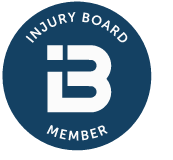
The Discovery Phase: Interrogatories
If you had to file a lawsuit for your personal injury case in circuit court, discovery is the next step regarding your claim. The discovery process is the pretrial phase of your lawsuit dedicated to gathering evidence, understanding the other party’s position, and developing court strategies. The range of information that can be requested in discovery is broader than the information that is admissible in court if the case is tried. A policy underlying discovery is the practical recognition that the more a litigant knows about their opponent’s case, the more likely the case will settle as each side can better assess his or her chances of success at trial.
During discovery, both you and the defendant will request material that can lead to the discovery of admissible evidence in court. Discovery consists of several different types of methods used to gather this information. Interrogatories are one of the main tools of discovery used during this process.
What are Interrogatories?
Interrogatories are questions submitted in writing directly to another party in a lawsuit and allow each side to obtain information about another party’s version of events, claims, defenses, and facts relied upon to support their case and better prepare for court. While many tools can be used during discovery, interrogatories and depositions usually make up most of the process.
What information do Interrogatories Seek?
The information gathered from interrogatories will enable you to learn facts that strengthen or weaken your case. This helps your attorney determine what issues are present in the case and how to frame your deposition. Your personal injury attorney will carefully word interrogatories to seek particular information about the defendant’s version of the incident that caused your injury.
In instances of a car crash, your attorney will submit interrogatories seeking responses that reveal the defendant’s negligent or reckless driving. For example, questions about the speed the defendant was traveling and the speed limit are common in situations where speed contributed to a crash. The defendant may then counter-argue that the crash was unavoidable due to some external circumstance.
In slip and fall cases, interrogatories often include questions about potential defects or hazards, inadequate lighting, and relevant signage in the area or walkway where you were injured.
How Many Interrogatories Can I Submit?
All Federal and individual state courts have rules regarding interrogatories. In the Commonwealth of Virginia, Supreme Court Rule 4:8 states: “No party shall serve upon any other party, at any one time or cumulatively, more than thirty written interrogatories, including all parts and sub-parts without leave of court for good cause shown.”
This means that you will be limited to a maximum of 30 interrogatories submitted to the defendant unless the court approves additional interrogatories based on your submission of a “good cause” or reason to include them. The same limit applies to the defendant submitting interrogatories to you.
Responding (or Objecting) to the Defendant’s Interrogatories
After receiving your interrogatories, the defendant will have 21 days to submit an answer. As you may expect, the same rule applies to you: after receiving interrogatories from the defendant, you will have 21 days to respond. Every interrogatory must be answered separately, in writing, and under oath.
Objecting to Interrogatories
You can also object to certain interrogatories handed to you. There are several reasons you may want to respond with an objection. The information requested by the other party may not reasonably be related to the case, or they may be asking for information protected by the attorney-client privilege.
The defendant could be seeking vague, burdensome, or otherwise out-of-bounds information that will not lead to the discovery of admissible evidence. Discovery objections need to be built with the same care as the rest of the case. General or broad objections will most likely be dismissed—your attorney will know how to structure objections to protect your best interests. It is important to note that objections may be considered waived if they are not submitted within the 21-day response limit.
The next core discovery tool in personal injury lawsuits are depositions (which will be covered in our next blog).
Tell us more about your legal matter and a member of our team will be in touch with you shortly.


















